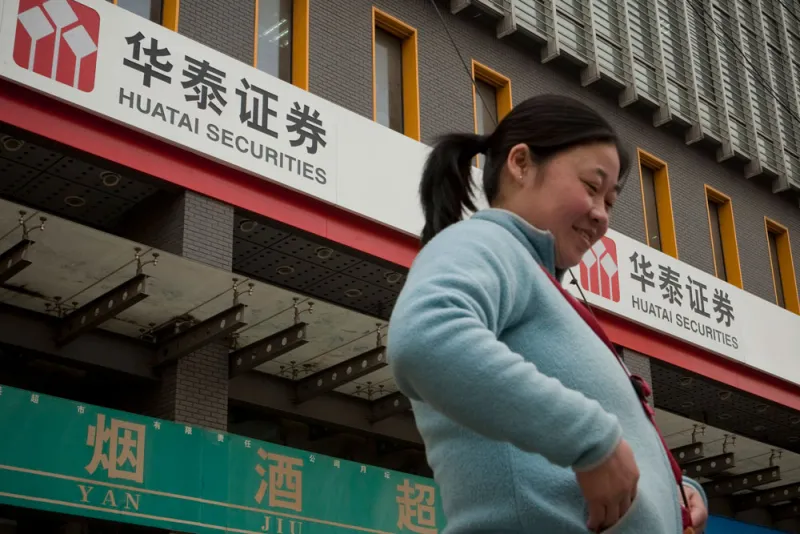Despite continued uncertainties surrounding trade, currency, and liquidity, China is shaking off its economic malaise: The country is on track to have the best performing stock market in 2019.
“Chinese A-share markets actually have done well so far this year, probably because investors were too pessimistic about the growth outlook in China at the end of last year,” reported Hong Liang, chief economist and head of research of China International Capital Corp.
To date, the country’s CSI 300 index has gained over 30 percent, after a disappointing 2018. But this silver lining was proceeded by storm clouds in the shape of an ongoing trade war between China and the U.S., a conflict whose resolution appears both imminent and further away each passing day.
Navigating these ups and downs is no small task — so which research firms are getting it right?
Institutional Investor’s tenth annual All-China Research Team ranks the top providers, as determined by mainland and international investors. This year, more than 4,800 investment professionals at nearly 1,000 institutions showed a clear preference for domestic firms, resulting in a major shakeup of last year’s leaderboard.
Huatai Securities — which ranked sixth last year — leapt to the No. 1 spot in the 2019 ranking of the best research teams, edging 2018 incumbent CICC down to second place. GF Securities improved on its eleventh place ranking to finish third this year, while Guotai Junan Securities slipped one spot to fourth. The highest-ranking international firm was UBS, which placed fifth.
Voters rated the top firms across 25 industry and economic sectors to form the team ranking. Additionally, they separately ranked individual analysts in each sector to form an analyst-based leaderboard, which CICC topped for the eighth year in a row. Votes in both categories were weighted by each respondent’s Chinese equity assets under management.
In order to highlight the difference in perspectives between domestic and international investors, respondents were divided by location to produce additional rankings from each point of view.
The mainland ranking of research teams was similar to the combined result, with Hutai Securities ranking first and CICC and GF Securities tying for second. International voters, however, chose UBS as the this year’s top provider. CICC and Citi — who had tied for first last year — placed second and third, respectively, among international voters. Bank of America Merrill Lynch ranked fourth, while Morgan Stanley came in fifth.
[II Deep Dive: Trade Tensions Made Investing in Asia ‘Painful.’ These Research Providers Can Help.]
Despite the two groups’ differences in opinion, current domestic and international client concerns largely overlap, according Eric Lin, head of research at UBS Securities in China. “In the near-term, their main concerns remain US-China trade tensions and currencies, leading to domestic economic slowdown,” he said.
Negative impacts of the trade war, according to CICC’s Liang, have included a probable slowdown in capital expenditure spending and a major contraction in Chinese export growth. She said that export growth in USD terms has been flat this year, down from 10 percent year-over-year in 2018. September was a particularly bad month for export growth amid ramped up trade tensions, according to Lin.
Citing U.S. Census data, the UBS research head noted that those Chinese exports to the U.S. which were subject to the additional tariffs had already fallen by 34 percent year-over-year for the period between January and August. “Those without any higher tariffs still grew by 8 percent,” he said, but he added that the economy will continue to face downward pressure into early 2020. “However, we expect the suspension of the October tariff hike, as well as the increased policy support and commitment to exchange rate stability, to help growth to rebound in [the second quarter of 2020] onwards.”
Over the long term, Lin said that both domestic and international clients will focus on China’s macro leverage ratio, and “whether China's economic rebalancing will succeed.” However, international clients “care less about policies” compared to mainland investors, he said, explaining that they are taking a “bottom-up approach on the economy.”
Something that all investors are paying attention to is the increased inclusion ratio of China A-shares by index provider MSCI, which started last summer and continues to rise. “A move towards full inclusion would be a lengthy process,” Lin said, citing the nine and six respective years it took Taiwan and Korea to go from initial partial inclusion to full inclusion. “In both cases, the inclusion ratio was raised incrementally over time until it reached 100 percent.”
In China, according to the Lin, that would mean total foreign inflows into A-shares would amount to about $400 billion. According to data from the People’s Bank of China, foreigners now hold around $240 billion of A-shares. “With the help of the MSCI weight increase, foreign asset managers as a whole are likely to become the largest institutional investor in the A-share market,” he added. “Rising foreign participation would accompany increasing institutionalization of the market. We also expect increasing integration of A-shares with the global market to help improve corporate governance.”
As the markets mature, analysts who demonstrate intellectual curiosity, independent thinking and risk taking will thrive, according to CICC’s Liang. “Rising importance of Chinese capital markets have led to rising demand for better understanding of Chinese economy, industries and companies,” she said. “The learning has only just begun.”







